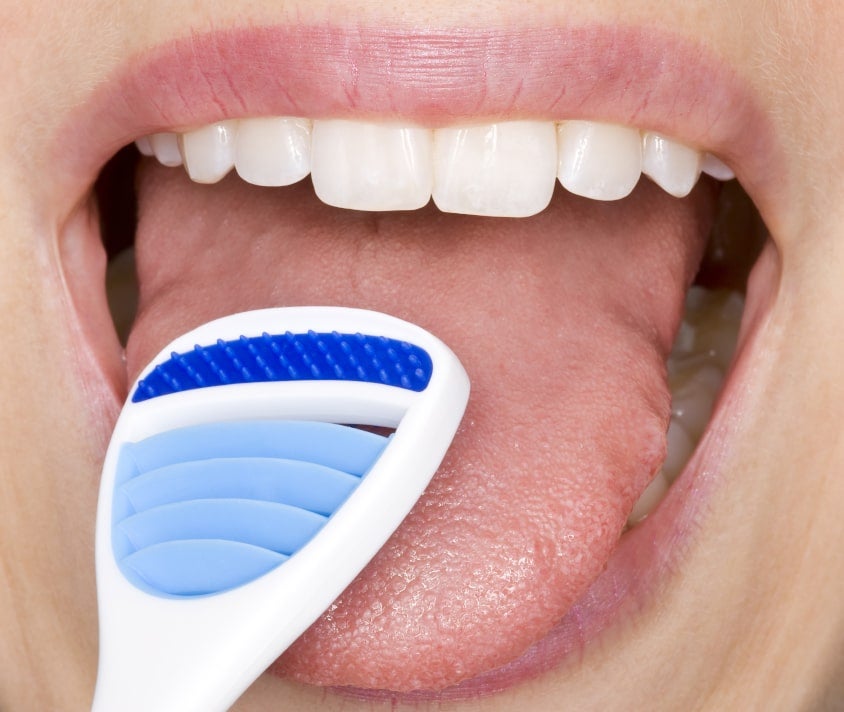This article will take you 5 minutes to read
As the seasons change, it’s important to recognize that weather shifts can influence more than just our clothing choices and daily activities. They can also significantly affect our oral health, as temperature fluctuations, humidity levels, and various weather conditions can contribute to gum problems. Understanding these connections can help you take proactive steps to protect your gum health year-round.
Exploring the Connection Between Weather and Oral Health
Both cold and warm temperatures can impact oral health, with tooth sensitivity being one of the most common issues. This sensitivity is often caused by factors like thin or weakened enamel, microscopic fractures, and worn-out fillings or crowns. Another cause of tooth sensitivity is mouth breathing, as the lips and cheeks act as insulation against harsh weather conditions. Breathing through the mouth exposes the teeth to extreme temperatures, which can lead to increased discomfort.1
How Temperature Changes Impact Gum Health
During the fall and spring, fluctuating temperatures can lead to various oral health concerns. Dry mouth, often triggered by weather changes, reduces saliva production, which increases the risk of gum issues. Tooth sensitivity may become more pronounced, making eating and drinking uncomfortable. Additionally, changing weather can contribute to dental cavities as oral hygiene habits shift. Seasonal changes can also trigger cold sores in some individuals due to fluctuating immune responses, while canker sores may become more frequent, potentially due to stress and dietary changes. Moreover, changing weather patterns can impact overall health, increasing the risk of oral discomfort.2
How Seasonal Allergies Can Affect Your Gums
Spring often brings allergy season, characterized by excess mucus that accumulates at the back of the nose or throat, leading to throat clearing, coughing, and discomfort. This mucus, produced as a response to allergens like pollen and dust, can indirectly affect dental health. Mucus contains proteins that oral microorganisms thrive on, and when combined with dry mouth, it can lead to gum discomfort and potentially more severe dental problems.3
Heat and Dehydration: Risks for Gum Tissue Health
Hydration is essential for overall health, including oral health. Dehydration reduces saliva production, leading to a drier mouth environment. Saliva plays a crucial role in washing away food particles and neutralizing bad microorganisms in the mouth. Without sufficient saliva, plaque and tartar can accumulate, breaking down tooth enamel and leading to serious gum problems such as swelling, soreness, and increased sensitivity. This can also result in more severe symptoms, such as loose teeth.
Saliva is vital for maintaining oral health as it not only helps wash away food debris but also supplies essential minerals that support tooth health.4
Tips to Avoid Dental Discomfort During Weather Changes
- Breathe Through Your Nose: Cold air can shock your mouth and lead to tooth sensitivity. To avoid this, focus on breathing through your nose. If nasal breathing is difficult, use a scarf to cover your mouth when outdoors to reduce exposure to cold air.5
- Stay Hydrated: Drinking enough water helps maintain consistent saliva production and overall hydration. In extremely cold weather, avoid consuming overly hot drinks that can cause temperature shock to your teeth.6
- Keep Your Lips Moisturized: Staying hydrated is essential, but applying lip balm or oil can help keep your lips moisturized. This is particularly beneficial if you experience dry mouth, as it helps protect your lips and provides comfort.7
- Avoid Clenching Your Jaw: Clenching your jaw is a common response to cold temperatures, but it can lead to jaw discomfort, headaches, and serious dental problems. Dressing in warm layers can help you avoid experiencing this involuntary reaction.8
Frequently Asked Questions
What are the effects of cold weather on my gums?
Cold air inhaled through an open mouth can cause teeth to contract, exposing sensitive areas, especially along the gum line.9
Can hot weather and dehydration lead to gum problems?
Yes, dehydration from insufficient liquid intake can lead to gum problems. It’s important to stay hydrated, especially in hot weather, by drinking water throughout the day rather than waiting until you feel thirsty.10
Are there specific weather conditions that worsen gum problems?
Yes, cold temperatures, hot and humid conditions, seasonal changes, and temperature fluctuations can reduce saliva production and increase the risk of gum problems.
References
1. https://widneydental.com/how-weather-can-affect-teeth-and-oral-health/
2. https://upperhuntclubdentalcentre.com/blog-can-weather-changes-impact-your-oral-health-3755
4. https://www.carydentalassociates.com/dehydrated-gums-how-dehydration-affects-oral-health/
6. https://upperhuntclubdentalcentre.com/blog-can-weather-changes-impact-your-oral-health-3755
7. https://upperhuntclubdentalcentre.com/blog-can-weather-changes-impact-your-oral-health-3755
8. https://upperhuntclubdentalcentre.com/blog-can-weather-changes-impact-your-oral-health-3755
11. https://islingtondentalclinic.com/blog-How+Seasonal+Changes+Affect+Your+Oral+Health-4421



